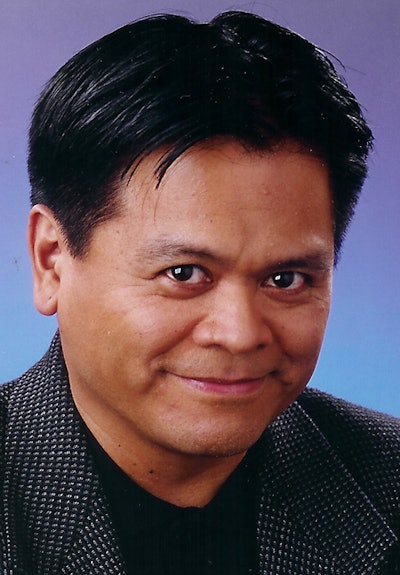The University of Austin, or UATX, has created a lot of hubbub the last few weeks as a new university that will defend free speech.
I just want to know if the place will have a diversity officer?
Or will that even be a guiding principle, like having a diverse and esteemed faculty serve an equally diverse student body?
Will that even be a value the university will believe in? Or maybe it will just have an affirmative action program for aggrieved white folks and misguided Asian Americans.  Emil Guillermo
Emil Guillermo
My initial instinct is that the school is for people to openly decry the woke and to debunk Critical Race Theory as the work of the devil.
We’ve come to that point in the history of higher ed in the U.S.
The unwoke want their own Ivory sandbox.
Reports confirm, UATX will be a place for what at some traditional places would be considered “Forbidden Courses,” noncredit programs that reportedly “will offer spirited discussion about the most provocative questions that often lead to censorship or self-censorship in many universities.”
Is there a market demand for such a thing?
Potential students can already listen to talk radio, watch Fox News and troll liberal sites for free right now—for free. Does anyone want the rigor of academia, with tuition to match, and then be graded for their distastefulness?
I suppose if it’s noncredit, then it should have all the rigor of a defunct Trump University, or a Prager U., or any of the other right-wing after thoughts on the market using the “university” model.
But UATX is trying to be different, having as its inaugural president, Pano Kanelos, a former president of St. John’s College in Annapolis.
Does that mean there will be a “100 Great Books” program that includes Bill O’Reilly best-sellers, books that are their own Cliff Notes? Or transcriptions of the complete set of Joe Rogan podcasts?
With Kanelos at the head, UATX, looks to be more real than that. The Shakespearean scholar gives the project a bit of heft. He’s the president of what will have a brick and mortar presence with real people in Austin. Kanelos told the New York Times, he was surprised people were “paying so much attention to higher education.”
He’s said he’s hoping to bring together different perspectives on issues to the classroom and have students decide. That sounds a lot like Fox News’ “We report, you decide.” Or it sounds like what every school that exists is free to do now.
I do like Kanelos’ stated aim to provide a modest liberal arts education at “less than $30,000, for sure.”
But doesn’t that sound like any elite existing state college. UATX could save even more money if the courses were solely on-line. Or just worked with existing colleges. But then were would the profit motive be for the “founders” which sound like a tech start-up. Indeed, the founders include Joe Lonsdale, a technology entrepreneur and co-founder of Palantir Technologies.
How 21st Century regressive. Right-wing principles, funded by Venture Capital. It’s as anti-liberal as it gets.
Frankly, I just don’t see the need for UATX. But I do think, regardless of the apparent ideological bias the founders have, higher ed does need to rethink itself.
What is the value of a four-year onsite liberal education when you’re more like a hotel than a place of “learning”? Do people really have to be together in an in- person community? Wouldn’t it be easier to alienate a liberal public and student body on-line without fear of protests or reprisal? Wouldn’t it be 21st century just to have people zoom in from all over the world?
I’m all for glorifying a zoom room and calling it a college, because whether it’s UATX or University of Critical Race Theory, those kind of changes are coming. It’s cheap and efficient. Perhaps not for a full B.A. or even A.A. but as a certificate based/unit based educational experience.
There may be no humanity in the humanities, or the sciences at such a “campus” like that. But in a digital world it’s efficient.
We’d have to invent ways to meet that doesn’t involve Tinder, Grinder or Farmersonly.com
That should be the takeaway from all the UATX talk. It’s not just for those who have felt the sting of “illiberalism and censoriousness.” It’s for anyone who is interested in the evolving delivery system of higher ed in America. Because things are changing, due to market, society, and technology.
And through it all, as always, diversity will have to fight to make sure it’s an enduring value.
Emil Guillermo is a journalist and commentator and a former adjunct professor in journalism. He writes for the Asian American Legal Defense and Education Fund. You can follow him on Twitter @emilamok



















